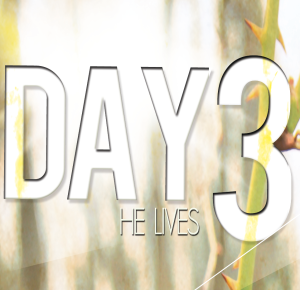Teams are everywhere. There are sports teams, work teams, research teams, medical teams, ministry teams — all kinds of teams. Much of what is accomplished in our world is done by teams.
The Bible extols the value of teams:
Two are better than one because they have a good return for their work … — Ecclesiastes 4:9 (NIV)
Two can accomplish more than twice as much as one, for the results can be much better. — Ecclesiastes 4:9 (The Living Bible)
Great teams produce greater results. Teaming up takes things to a whole new level. When we work together it's amazing what can be done. When “we” takes the place of “me,” watch out, good things are on the way! For this to happen there are some things we need to understand about team work and team life.
It's been said that “there's no 'I' in team.” While I agree with the premise of the statement, I would quickly say, “yes there is!” There's an “I” in every team. The “I” is the “individuals” on the team. A team is only as strong as the individuals that are part of it.
Teams are made up of individual people. These “individuals” must bring the right things to the team if the team is going to be all it can be.
Let's take a look at 7 characteristics of a great individual team member.
1. Great team members are COMMITTED to the team.
To be a strong team member you must be “all in.” You must love being on the team. You must be committed to the team members and organization. You must “wear the team colors,” and “sport the team logo” in your attitudes and actions. You must honor your team by your words. There's nothing that lowers a team's morale and effectiveness more quickly than a member who's not committed. You can't be a “lone ranger” and a “team player” at the same time.
2. Great team members CARE about the team's mission.
A mission is a given assignment. It's a set of goals and objectives that are to be accomplished or achieved. A great team member cares about the mission that's been assigned to the team. They're fully invested in reaching the objectives. The goal becomes more important to them than their role. They're willing to do what needs to be done to fulfill the mission. There're willing to dig deep, work hard, relinquish personal ambitions, and remove defensiveness. They KNOW the mission and GO after it wholeheartedly.
3. Great team members are COMPETENT in their CONTRIBUTION.
No one enjoys working on a team where members fail to do their part. While we all have bad days, and need help along the way, we like to know that, in a reasonable way, everybody on the team is “bringing their best game.“
Great team members are conscientious about being their best and bringing their best to the table. They are growing, learning, increasing their competence and capacities. They inspire other members by their appetite for excellence and improvement.
4. Great team members are CONGENIAL and COLLABORATIVE.
There's an old military strategy called “divide and conquer.” What can be “divided” can be “conquered.” That's why team unity is such an important thing. When divisive attitudes, squabbling, competitiveness, contention, and mean-spirited attacks weasel their way into a team environment, the team's in trouble. When team interaction is characterized as cold, calculating, catty, political and territorial, the handwriting is on the wall. No progress happens.
Great teams consist of people who work on their relationship chemistry. They build their “emotional quotient.” They are congenial, communicative and kind-hearted. They work at getting along.
Genuine congeniality brings collaboration. A peaceful atmosphere leads to a productive process.
5. Great team members are CONSISTENT.
Consistency speaks of endurance — continuing undeterred down a pathway. It refers to diligence — staying at the right things without quitting.
A great team member is able to “roll with the punches,” deal effectively with setbacks, and flexibly handle changes. They're not just in for the quick win, they're in for the long haul. They are marathoners, not sprinters. They're the “Ever Ready Bunny!” They keep going and going! They're consistent. You can count on them.
6. Great team members CELEBRATE the abilities and achievements of others.
Jealousy kills teams. When team members have a hard time celebrating the gifts and accomplishments of their teammates, the team will never do it's best work. And when individuals on the team are applauded, but don't understand or acknowledge the contributions of their teammates to their success, team morale is undermined.
Great teams celebrate one another, without jealousy. A win for one is a win for all! This is easier said than done, but powerful when it's done.
7. Great team members have CHARACTER.
Lack of character in team members can be death knell to a team's power and success.
When people on the team are prideful, arrogance, filled with selfish ambition; when they're in it for themselves — using the team to build their personal platform rather than using their gifts and skills to build the team's platform — the entire team is adversely affected. When a team member is disingenuous or deceptive, lacks integrity, is untrustworthy, two-faced, disloyal, or a gossiper, others suffer. Character is critical to a team's success.
There's an “I” in team. The “I” is the individual team members. What kind of team member are you?
Pastor Dale





